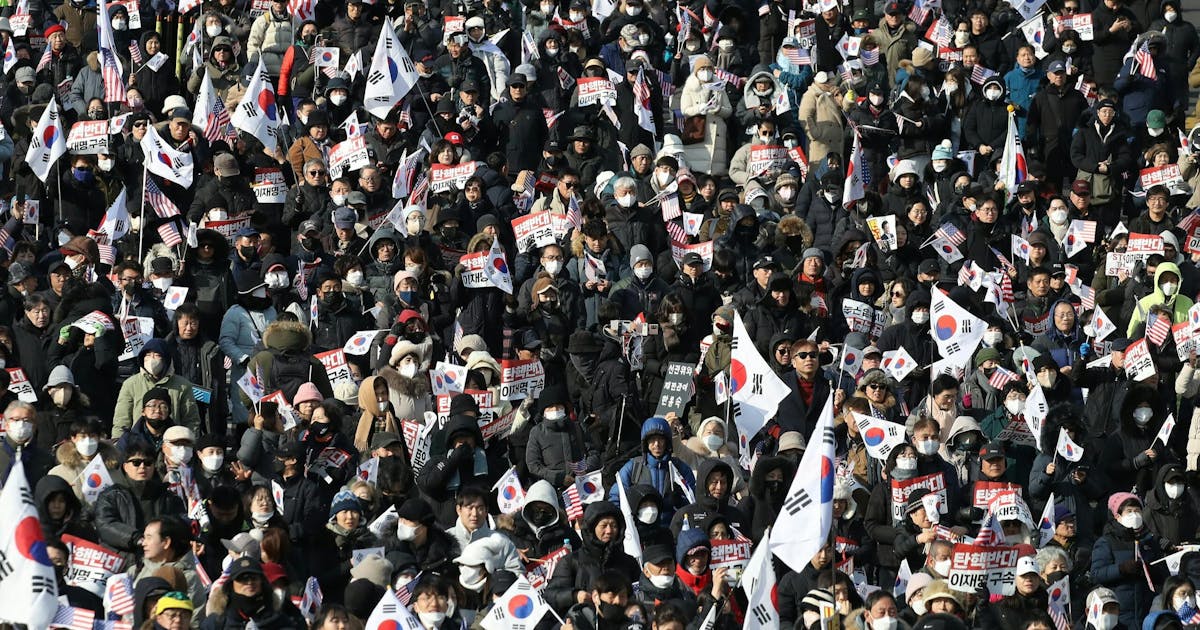


South Korea is currently facing a severe political crisis that is significantly impacting its economy. The situation escalated when President Yoon Suk-yeol declared martial law in early December 2024, a move that has led to widespread instability in the stock market and the national currency, the won, which is now at historic lows. Following this declaration, foreign investors have sold over 17 trillion won (approximately $13 billion) in treasury bonds, reflecting a profound lack of confidence in the South Korean economy [33549536].
The economic fallout from the political turmoil is evident, with business sentiment plummeting to its lowest level in four years. A recent report from the Bank of Korea predicts that economic growth for 2025 will be under 2%, a stark warning of the potential long-term consequences of the ongoing crisis [33549536]. In addition, the Korea Composite Stock Price Index (KOSPI) has experienced significant volatility, dropping sharply since the martial law declaration, and foreign investors have been increasingly pulling out of the market [d872f9bd].
The political landscape is further complicated by the potential impeachment of President Yoon, which could pave the way for a Democratic Party victory. Such a shift in power may lead to stricter regulations that could further affect economic recovery efforts [33549536]. Meanwhile, the implications of former President Trump's return to the White House are raising concerns about future tariffs and trade relations, adding another layer of uncertainty for South Korean businesses [33549536].
Bank of Korea Governor Rhee Chang-yong has voiced concerns that ongoing political instability could severely damage South Korea's external credibility and economy. He highlighted the increased financial volatility following the impeachment motion against acting Prime Minister Han Duck-soo, emphasizing the urgent need for political stabilization to restore investor confidence [c0e84a92].
As the crisis unfolds, analysts are closely monitoring the situation, particularly the potential for a sovereign credit rating downgrade if political instability continues. Such a downgrade would likely lead to increased borrowing costs, creating a vicious cycle of economic decline [d872f9bd].
In summary, South Korea's political crisis is not just a governance issue; it poses a significant threat to the country's economic stability, with far-reaching implications for both domestic and international stakeholders [33549536].